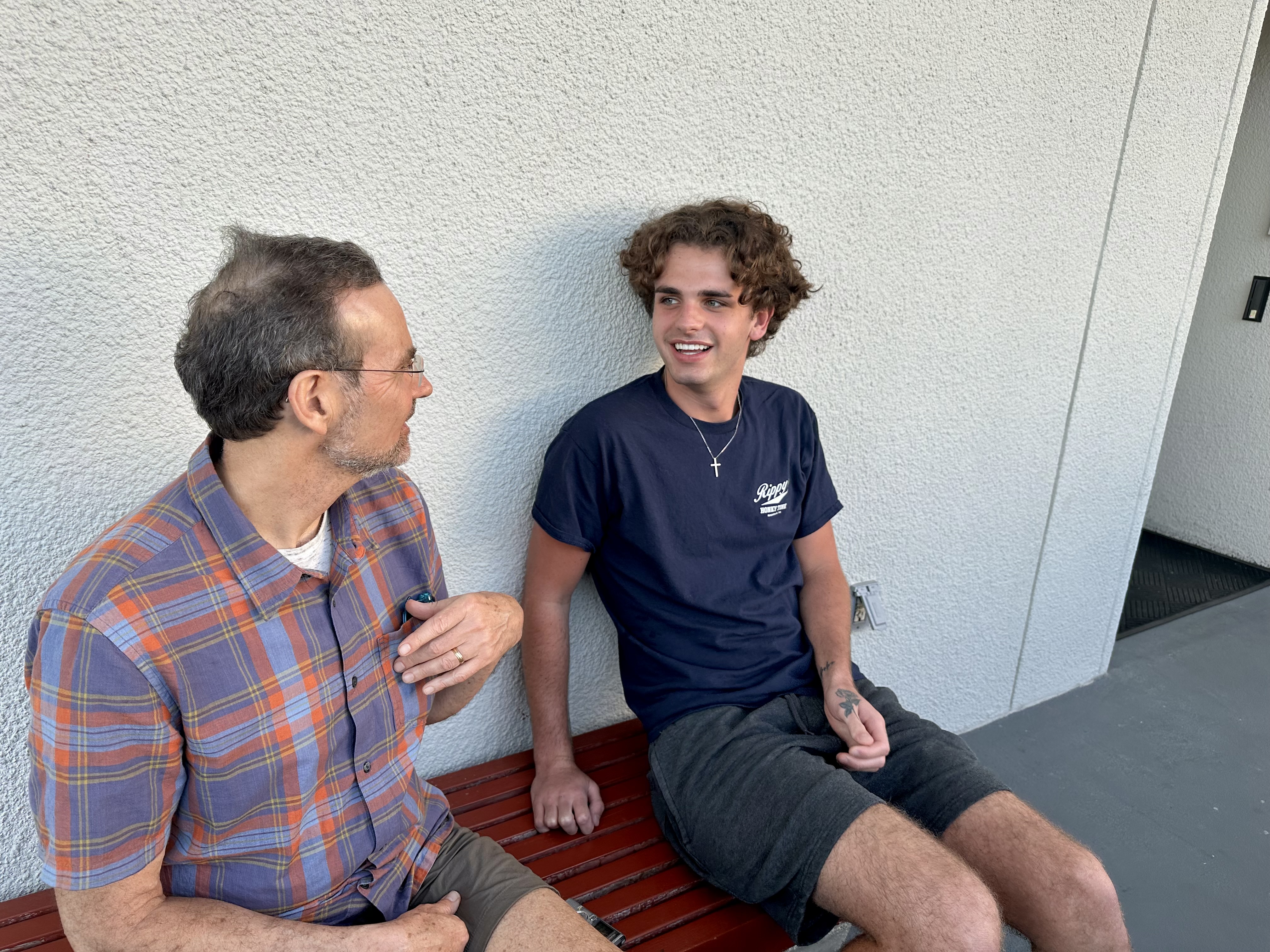By Richard Watts
Journalism professor Tsitsi D. Wakhisi comes from decades of experience in community reporting and editing as a former Miami Herald Neighbors editor who held various newsroom positions at several other newspapers before joining the University of Miami as a journalism professor. Wakhisi said she thought it important to ground her students in community reporting.
“I think that we really need to help communities understand what's going on in their community,” Wakhisi said. “So, we're not just this ivory tower but we should be part of the community and letting the community know what's happening because nobody else really is as community coverage declines from understaffed newsrooms, technological and revenue challenges.”
So in 1991, the School of Communication launched the “U/Miami News Service,” staffed by journalism graduate students. During the calendar-year master’s program, students wrote stories for a number of local media outlets, making them available through the wire service to partner publications at no cost – giving students valuable clips and newsroom experience.
In 2021, the School of Communication revised the program to include a mix of undergraduates and graduate students who offer multimedia stories to local media outlets, the college campus media and the news service’s website. The news service has been rebranded CommunityWire.Miami and students are covering nearby cities and neighborhoods, including Miami, Coral Gables, South Miami, Miami, West Miami, Pinecrest, Sweetwater, Little Havana, Coconut Grove, Brickell, South Beach, Richmond Heights and Little Gables. Stories are posted to the webpage and to community media partners such as Miami Today, Coral Gables Magazine and Legacy Miami Magazine. Some student stories can also appear in The Miami Herald, Wakhisi said.
Student Voices
On a recent lovely February Florida evening I got to sit down with a few of the students on a bench outside the classroom. Here is a little of what they told me.
 Guiselle Arciniega Gomez
Guiselle Arciniega Gomez
Born in Nicaragua, Guiselle is committed to becoming a Spanish-language journalist following in the footsteps of her mother.
“My mom was a journalist in Nicaragua. She passed away,” Guiselle said. “But I happened to experience all of this because I was an only child with her. So, it's something for me to be with her, and I feel like I have lived that life through her. So, it is something that I feel is important to do.”
Completely bilingual, she intends to cover stories in Spanish for South Florida’s Hispanic community.
“I want to be in the Spanish media because I feel like I sympathize with my community, and it flows better for me,” Guiselle said. “I want to give back to my community here in the United States. It may have been a small community, but now it's getting bigger and bigger and bigger. I definitely want to be part of that.”
A recent story brought this home to her.
“I just had an interview with an entrepreneur, a restaurant owner and chef from Venezuela. The story shows the reality of this country. In Miami it's people from other countries creating business, opening their doors since they have had to immigrate here for different reasons. Venezuela has a very, you know, hard situation right now, political, social and economic. So, it's just very amazing to see how immigrant people are moving here, and they're opening their own businesses and they're doing things for their community.”
 Brandi Troup
Brandi Troup
Brandi, a Miami native, was born and raised a few blocks from the university. Her journalism passion is radio where she works as a local on-air personality. Like Guiselle, Brandi is in the journalism graduate program. She is drawn to journalism because she likes telling people’s stories, she said.
“I'm just naturally a curious person,” Troup said. “I'm naturally inquisitive. I'm also a people person. I just love talking to people. I like being able to pull out that charisma from someone who's not necessarily talkative and giving that more human side of you.”
A recent story enabled her to do just that, Troup said, when Wakhisi gave her the idea of localizing the Damar Hamlin story -- the Buffalo Bills player who was injured and went into cardiac arrest. Troup tracked down Hamlin’s teammate, Jaquan Johnson, a former University of Miami player.
“He really just put me in that moment,” Troup said. “Just going over everything that he felt and just how impactful it was for the team and for how they were taking it. It was amazing to hear him talk about it.”
 Carter Richardson
Carter Richardson
Carter, a sophomore from upstate New York, told me he likes the research part of reporting and seeing stories come to life.
“The stories on the surface seem pretty boring, to be quite honest,” Carter said. “And then you do the detective work, and you learn a lot. A lot of it ends up being really interesting, and whether or not it's a blockbuster story, I just am one of those people that really likes to learn,” Carter said.
For example, a recent story taught him about the local boating industry.
“Like in this last story I just learned a lot about the maritime industry and the boating industry and how it compares to the automobile industry,” Carter said. “And it was just so interesting and to see how basically the bottom line is that the country can't keep up with the demand for skilled workers because technology's developing too fast.”
For more information:
Tsitsi D. Wakhisi - twakhisi@miami.edu

